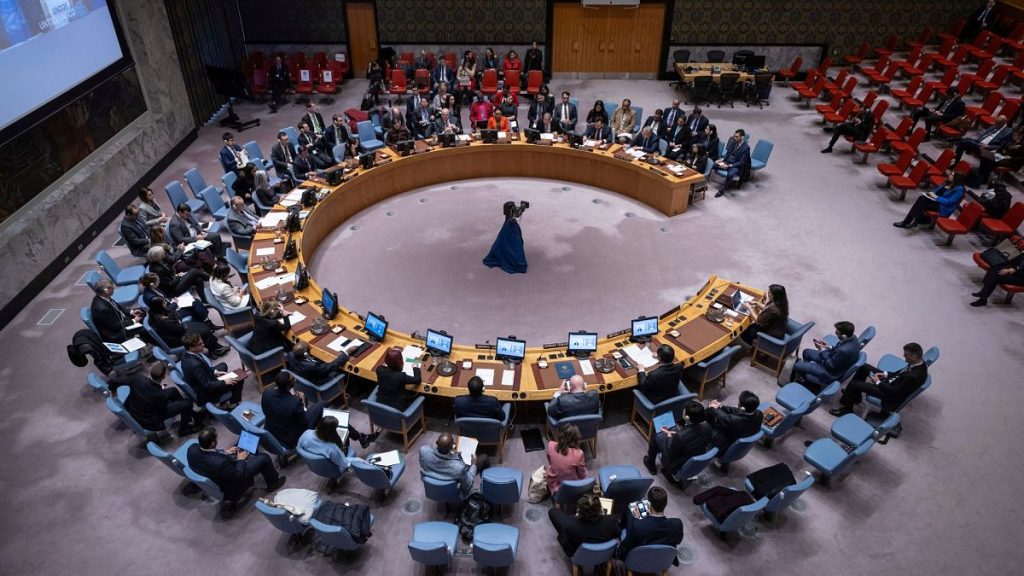The Resurgence of Violence in Darfur: A Chilling Echo of Past Atrocities
The International Criminal Court (ICC) Prosecutor, Karim Khan, has delivered a stark warning to the UN Security Council: the conflict in Sudan’s Darfur region is rapidly escalating, mirroring the horrific atrocities that scarred the region two decades ago. Khan’s assessment, based on verified evidence, paints a grim picture of targeted attacks against civilians, rampant sexual violence against women and girls, and the wholesale destruction of communities. The current conflict, which erupted in April 2023 between the Sudanese military and the paramilitary Rapid Support Forces (RSF), has spread from the capital, Khartoum, to other regions, including Darfur, rekindling the horrors of the past. The similarities between the current conflict and the events of 2003 are undeniable, with the same perpetrators, the same targeted groups, and a tragic recurrence of suffering inflicted upon the same communities.
The Shadow of Genocide: A New Generation Endures the Same Hell
Darfur gained notoriety in the early 2000s as the site of genocide and war crimes perpetrated by the Janjaweed Arab militias against non-Arab populations. The current conflict, Khan asserts, bears "very clear echoes" of that dark period, with the RSF, which evolved from the Janjaweed, implicated in new atrocities. The ICC prosecutor has indicated that there are grounds to believe that both government forces and the RSF may be committing war crimes, crimes against humanity, or even genocide in Darfur. This assessment aligns with the Biden administration’s determination that the RSF and its proxies are committing genocide in Sudan’s civil war. The cyclical nature of violence in Darfur underscores the urgent need for accountability and justice to prevent history from repeating itself.
Targeting the Vulnerable: Gender-Based Violence as a Priority
The ICC investigation is prioritizing allegations of gender-based crimes against women and girls, a particularly disturbing aspect of the escalating violence. Reports from organizations like Human Rights Watch detail the horrific attacks carried out by the RSF and allied militias on ethnic Masalit and other non-Arab groups in West Darfur, with thousands killed and hundreds of thousands displaced. These attacks, often characterized by extreme brutality and sexual violence, underscore the vulnerability of women and girls in conflict zones and the critical need for international intervention to protect them. The ICC’s focus on these crimes signals a commitment to holding perpetrators accountable and bringing justice to the victims.
Pursuing Justice: Arrest Warrants and the Search for Accountability
The ICC prosecutor has announced his intention to pursue arrest warrants for individuals accused of atrocities in West Darfur. This decisive step aims to bring perpetrators to justice and deter further violence. Khan has stated that his office is taking the necessary steps to prepare applications for arrest warrants related to alleged crimes committed in the region. This commitment to pursuing justice is crucial in breaking the cycle of impunity that has allowed such atrocities to persist for so long. The ICC’s efforts to hold individuals accountable send a powerful message that such crimes will not be tolerated.
A Worsening Humanitarian Crisis: Famine, Conflict, and Destruction
The ongoing conflict has exacerbated an already dire humanitarian situation in Darfur. Khan described a worsening crisis over the past six months, characterized by famine, escalating conflict, widespread destruction, and the pervasive sexual abuse of women and girls. The urgent need for humanitarian assistance is undeniable, and the international community must act swiftly to provide aid and support to the affected populations. The combination of violence and humanitarian crisis creates a desperate situation for civilians, demanding immediate and sustained international attention.
The Path Forward: Cooperation, Accountability, and the Pursuit of Peace
In addressing the violence, Khan issued a direct appeal to those involved, urging them to comply with international humanitarian law, not as a political gesture but as a fundamental humanitarian imperative. He also revealed that his office is engaging with the RSF to gather information for its investigations, underscoring the importance of cooperation in uncovering the truth and holding perpetrators accountable. While pursuing justice is crucial, the ultimate goal must be a lasting peace in Darfur. This requires a multifaceted approach that includes accountability, humanitarian aid, and a concerted effort to address the root causes of the conflict. The international community must work together to support the Sudanese people in their pursuit of a peaceful and just future.














